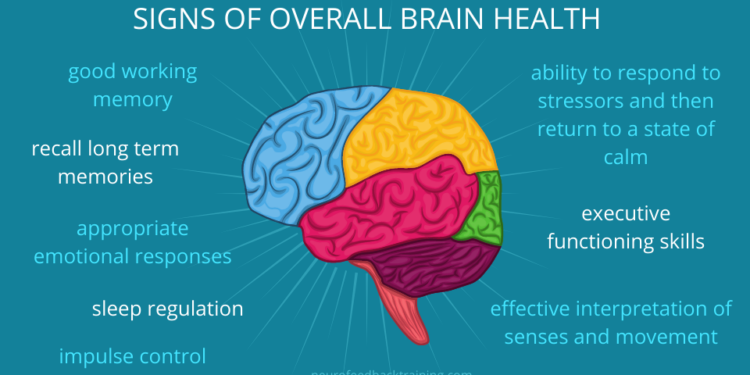Cognitive function is the cornerstone that allows us to successfully manage the plethora of chances and problems that present themselves in the complex dance of daily life. The health of our brains has a significant impact on how our personal and professional lives unfold, from the routine activities of daily life to the pursuit of ambitious goals. However, in the middle of the never-ending obligations and diversions of contemporary life, the significance of maintaining and enhancing cognitive health is frequently eclipsed by more pressing issues.
In this situation, the importance of diet becomes clear as the food we eat have a significant impact on the complex network of neuronal pathways that make up the human brain, affecting our mental health and developing our cognitive capacities in subtle and significant ways. It is impossible to overestimate the ability of nutrient-dense meals to support cognitive function, from the phytonutrients that protect against oxidative stress and inflammation to the micronutrients that support neurotransmitter synthesis.
Feeding The Brain
Why exactly is it important to feed our brains with nutritious fare? Well, think of your brain as a delicate ecosystem, finely balanced and exquisitely sensitive to the nutrients we provide. From omega-3 fatty acids found in fatty fish like salmon to the antioxidants abundant in colorful fruits and vegetables, each morsel we consume plays a vital role in sustaining cognitive function and safeguarding in essence,feeding the brain with nutritious foods is essential for supporting cognitive function, regulating mood, promoting brain development and maintenance, providing neuroprotection, enhancing learning and memory, improving focus and concentration, and supporting the brain-body connection. By prioritizing a healthy diet, individuals can optimize brain health and overall well-being at every stage of life.
How, you might ask, does a healthy diet actually improve brain function?
A diet rich in vitamins, minerals, antioxidants, and essential nutrients provides the brain with the raw materials it needs to function optimally. For example, omega-3 fatty acids found in fatty fish like salmon and walnuts are crucial for brain health and have been linked to improved cognitive function and reduced risk of neurodegenerative diseases.also when the brain is feed with healthy diet it reduces Chronic inflammation in the body which negatively impact brain function and increase the risk of cognitive decline,so diet high in antioxidants and anti-inflammatory foods, such as fruits, vegetables, nuts, and seeds, helps combat inflammation and protect brain cells from damage. Also brain bloater nutrients found in blueberries, green tea, and turmeric, have been shown to support neuroplasticity and promote the growth of new brain cells, enhancing learning and memory.
Why Do We Eat To Keep Our Brains Healthy?
Well, aside from the obvious perks of enhanced cognitive function and razor-sharp focus, nourishing our brains with wholesome foods is a bit like investing in our future Picture this: by adopting healthy eating habits today, we’re laying the groundwork for a lifetime of cognitive vitality and emotional well-being. From acing that exam to staying sharp as a tack in the golden years, the benefits of a brain-boosting diet extend far beyond the confines of our kitchen tables.As the saying goes, “You are what you eat,”and when it comes to brain health, we not only support cognitive function, neuroprotection, and brain development but also enhance mood, promote neuroplasticity, improve blood flow, and reduce the risk of cognitive decline.
Remember,the choices we make at the dinner table can have profound and lasting effects on our cognitive vitality and quality of life.
Recipe: Wild Salmon With Couscous And Avocado Salad
Ingredients:
2 wild-caught salmon fillets
1 cup quinoa
2 ripe avocados, diced
1 cup cherry tomatoes, halved
1/4 cup red onion, finely chopped
2 tablespoons fresh cilantro, chopped
2 tablespoons extra virgin olive oil
1 lemon, juiced
Salt and pepper to taste
Health Benefits:
1.Wild Salmon: Rich in omega-3 fatty acids, which support brain health and cognitive function.
2.Couscous (Whole Wheat)It’s lower in calories but still provides fiber and essential nutrients to support cognitive function.
3.Avocado: Loaded with healthy fats, avocados support brain cell structure and enhance cognitive function.
Tomatoes: Packed with antioxidants, tomatoes help protect brain cells from oxidative stress and inflammation.
4.Olive Oil: Contains monounsaturated fats and antioxidants that support brain health and improve cognitive function.
Lemon: High in vitamin C, lemon boosts immune function and enhances brain health.
Cook Instructions:
1.Rinse the quinoa under cold water. In a saucepan, combine 2 cups of water and 1 cup of quinoa. Bring to a boil, then reduce heat to low, cover, and simmer for 15-20 minutes until quinoa is tender and water is absorbed. Fluff with a fork and set aside to cool.
2.Preheat the oven to 375°F (190°C). Place salmon fillets on a baking sheet lined with parchment paper. Drizzle with olive oil, lemon juice, salt, and pepper. Bake for 12-15 minutes until salmon is cooked through and flakes easily with a fork.
3.In a large mixing bowl, combine cooked quinoa, diced avocado, cherry tomatoes, red onion, and chopped cilantro. Drizzle with remaining olive oil and lemon juice. Season with salt and pepper to taste. Gently toss to combine.
4.Serve the baked salmon alongside the quinoa and avocado salad.
Cook Time:
Couscous (Whole Wheat): 15-20 minutes
Salmon: 12-15 minutes
Serve Prep Time: 10 minutes
Total Time: Approximately 35-45 minutes



